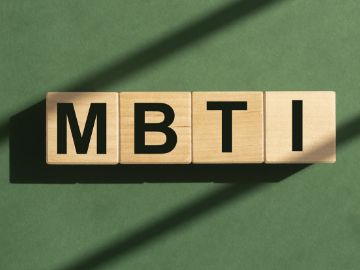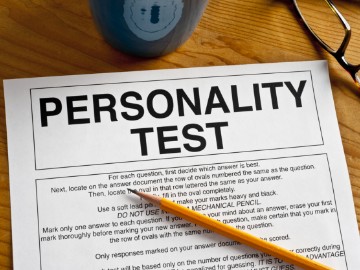Why it is Hard to See Yourself Clearly

Despite how well you think you know yourself; others will always see you differently. Seeing yourself clearly isn't easy. Nowadays, social media is constantly attacking our self-esteem, hard-to-manage workloads are increasing and as a result, we are self-criticizing more and more. When you're conducting a job search, it is crucial to understand yourself and be open to constructive criticism to allow for self-growth.
Critical Inner Voice and Self-Assessment
Unfortunately, our critical inner voice often speaks louder than our self-praise. According to the National Science Foundation, 70-80% of our daily thoughts are negative. These negative thoughts are often about ourselves. This could stem from several causes: a harsh upbringing, bad relationships, stressful work environments, media exposure, or just having a bad day. As a result, we distort our self-perception. Not only will that make you hyper-aware or critical of yourself, but it can translate into defensiveness when receiving feedback in your job.
Even when you are aware that you have poor time management skills, it is hard not to put up your guard when someone points this out. It's difficult to hear someone else describe your faults. Therefore, your self-perception doesn't just affect how you see yourself, but it may also damage your interaction with others and influence how you represent yourself. Accepting and embracing your own faults will open room for development that recruiters will positively recognize.
On the other hand, you may think you have certain positive skills that are blatantly obvious to others. You could view yourself as a leader in problem-solving, but others perceive the very same thing as negative and controlling. This is self-deceiving bias. Making an accurate, undistorted, self-assessment is vital when aligning your skills with job requirements. The only way to cut through self-deceiving bias is to get feedback from others.
We All Have Blind Spots
The gaps in our self-perception are called blind spots. We all have them. These are things that people can see in us that we don't see ourselves. We may not see them because of poor self-esteem, a loud critical inner voice, or fear of acknowledging them.
The more experienced you become; the less likely people are to point out blind spots. Therefore, it is important to ask for feedback throughout your whole career. Self-assessment is a tool for both your professional growth and job searches.
So how do you identify these blind spots? Ask for feedback from current or previous employers. Question how your actions affect others and how they contribute to the team. Challenge yourself to interact more to learn through others. You could evaluate how the other person listens, their body language, or the questions they ask to encourage conversation flow. Stop and think before you respond in an interview or team meeting. This will improve your emotional intelligence and demonstrate responsibility to an observer.
Understand Yourself Better for Your Job Search
Our society spends a great deal of time on social media watching unrealistic and filtered lives. After we finish school, we're often told to go to university, even if we don't know what career to pursue. Society puts weight on milestones that we're supposedly expected to reach on a certain timeline.
And we wonder why it's hard to see ourselves clearly...
When you understand yourself better, you are more equipped to conduct an effective job search. Invest time in yourself. Try to take charge of your inner critical voice. Have self-compassion and try to strengthen your self-esteem. Ask questions to figure yourself out, including what makes you sad, mad, and happy. As previously mentioned, this isn't an easy task, but the investment in time and energy pays off in personal and professional growth.
In more recent years, people began incorporating self-development tools into their daily routines. These include journaling, meditation, and yoga. Writing helps to see yourself more clearly. Meditation gives your mind the clarity to process your strengths and weaknesses.
When you're writing a cover letter, you need to make the link between a certain company and your values. You need to know yourself well to do so.
Open Your Eyes to Yourself
Life in modern society seems to be running on overdrive just to keep up with the competition and demand. Too often, we are told that emotional well-being comes second to earning money. In fact, they go hand in hand. Due to external and internal factors, it can be hard to see yourself clearly. Invest in self-assessment, be open to feedback, and practice compassion with yourself, and you'll see results.



